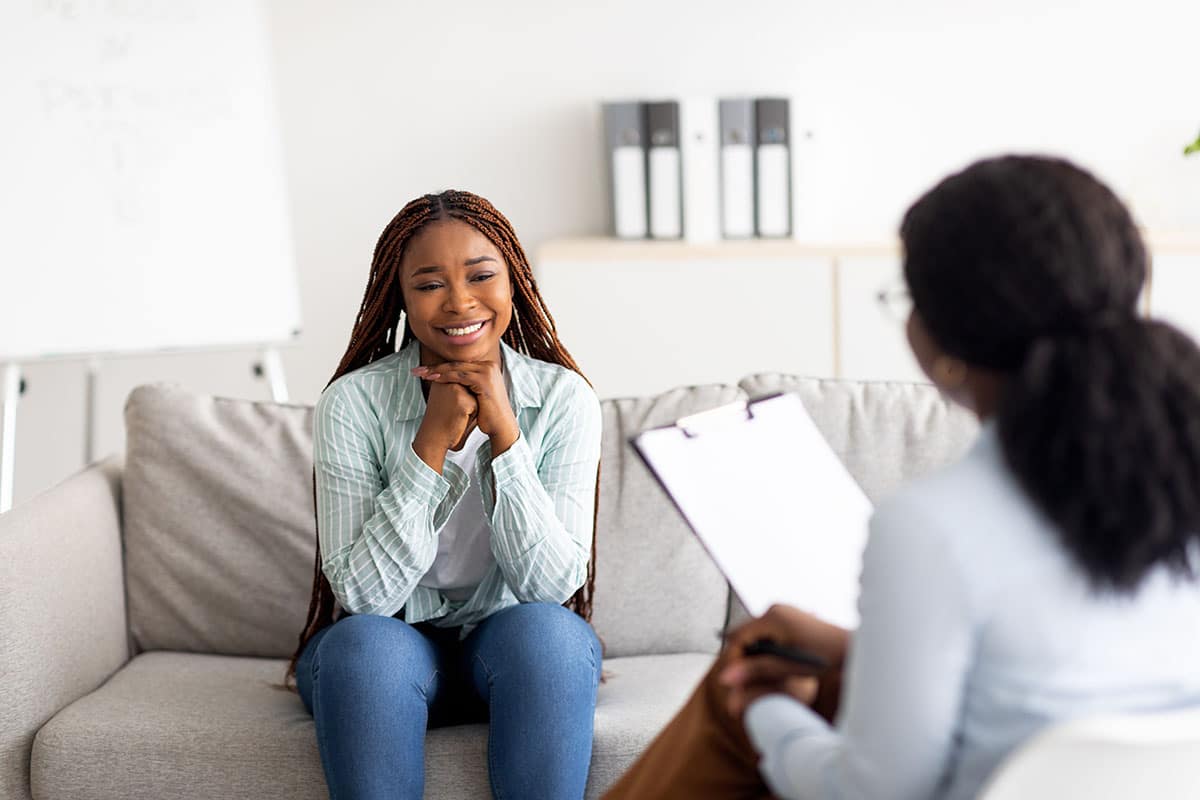Recovery from addiction is a transformative process, but it often uncovers deeper behavioral patterns, such as codependency, that must be addressed to ensure lasting success. Codependency and addiction frequently go hand in hand, as those struggling with substance use may also develop unhealthy dependencies on others.
Breaking free from codependent patterns can help you maintain sobriety and build healthier relationships after treatment.
Is It Love, Addiction, or Codependency? Signs to Look For
Before learning how to stop being codependent, it’s important to recognize if codependency is present in your relationships.
A common question is: Is it love or codependency? While love is built on mutual respect and support, codependency often involves an imbalance where one person is overly reliant on the other for emotional validation, control, or a sense of purpose.
Here are some signs that you might be in a codependent romantic relationship or experiencing codependent love addiction symptoms:
- You feel responsible for another person’s happiness, often at the expense of your own well-being.
- You have difficulty setting boundaries or saying “no,” even when it’s necessary.
- Your self-worth is tied to how much you can “fix” or care for someone else.
- You experience anxiety or emptiness when you’re not with the other person.
- You feel resentful because your needs are often unmet.
Recognizing these patterns is the first step toward breaking free from codependency.
How to Stop Being Codependent
Recovering from codependency requires a shift in mindset, boundaries, and self-care. Breaking free from codependency is especially critical after treatment for drug and alcohol addiction, as it helps foster healthier relationships and supports long-term recovery. Here’s how to not be codependent and regain your independence:
1. Practice Self-Awareness
Spend time reflecting on your behaviors and emotions. Journaling or speaking with a therapist can help you identify triggers and unhealthy patterns. Ask yourself questions like:
- Am I neglecting my own needs to focus on someone else?
- Do I feel anxious or unworthy without constant reassurance from others?
Awareness can be the foundation for change.
2. Set and Maintain Boundaries
Healthy relationships require clear boundaries. Learn to say “no” when needed and communicate your limits respectfully. This can feel uncomfortable at first, especially if you’re used to putting others’ needs ahead of your own. However, setting boundaries is essential for protecting your emotional well-being.
3. Prioritize Your Own Needs
Codependency often leaves little room for self-care. Reconnect with activities and hobbies that bring you joy and promote your physical and emotional health. Whether it’s exercise, meditation, or spending time with supportive friends, these practices can reinforce your independence and self-worth.
4. Seek Professional Support
Therapy is a powerful tool for overcoming codependency. A licensed therapist can guide you through understanding the root causes of your behavior and help you develop healthier relationship dynamics.
5. Build a Support System
Surround yourself with people who respect your boundaries and encourage your growth. Support groups, such as Codependents Anonymous (CoDA), provide a safe space to connect with others who are on the same journey.
How to Not Be Codependent in Romantic Relationships
Maintaining healthy dynamics in relationships after recovery requires conscious effort. Here are some practical tips to avoid falling into codependent patterns in a romantic relationship:
- Foster mutual respect – Ensure that both partners contribute equally to the relationship.
- Communicate openly – Honestly share your needs and feelings, and listen to your partner without trying to “fix” them.
- Value individuality – Encourage each other to maintain separate hobbies, friendships, and goals.
- Recognize red flags – If you notice old patterns resurfacing, address them with your therapist or support group.
Focusing on balance and mutual support can help you avoid slipping into a codependent romantic relationship and build healthier connections.
Embrace Independence from Codependency and Addiction Today at Landmark Recovery
Ready to take the next step? Contact Landmark Recovery today at (888) 448-0302 or online to learn more about how we can help you build a healthy, fulfilling, and independent life after treatment.

Choose Recovery Over Addiction
We're here 24/7 to help you get the care you need to live life on your terms, without drugs or alcohol. Talk to our recovery specialists today and learn about our integrated treatment programs.




